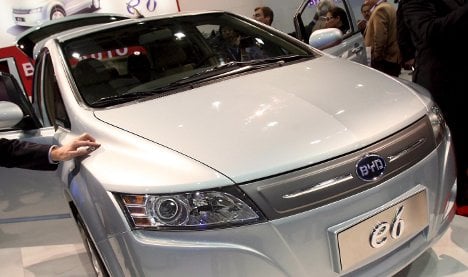A new research and development group to be called Shenzhen BYD Daimler New Technology Company will get an initial investment of around 600 million yuan (€71 million), a Daimler statement said.
“We are well-placed with our new joint venture to make the most of China’s enormous potential in electro-mobility,” Daimler Chairman Dieter Zetsche said.
The world’s oldest automaker and one of the youngest aim to market the vehicle under a new jointly owned brand, merging their technological know-how for China’s fast expanding urban market. Around 16 million autos are currently sold across the country each year.
Launched just seven years ago, BYD Auto now claims to be the sixth biggest car maker in China and its future plans are focused on electric or hybrid vehicles, building on the experience of its battery-making parent group.
The Chinese firm has begun to sell its electric E6 model as a taxi in Shenzhen and aims to distribute the car in Europe in 2011. US billionaire Warren Buffett holds a stake of 10 percent in the Chinese company.
Daimler, which made one of the first cars in the world in the 19th century, is the parent company of brands Mercedes and Smart.
It recently started testing electric-vehicle technology on the road in Berlin with a local power company and has also taken a stake in the US electric sports car specialist Tesla.
Some analysts are sceptical about the short-term prospects for electric cars because of the current technical limits on the range of purely battery-powered vehicles, their cost, and the lack of a network of roadside power points.
Others argue for their environmental advantages and point to the growing commitment by policymakers and the auto industry to the technology.



 Please whitelist us to continue reading.
Please whitelist us to continue reading.
Member comments